Death threats, abusive texts and sexual innuendo — it was the norm for Australia’s youngest minister, Kate Ellis. Yet, the public dislike for our politicians is only getting worse. And she says it’s their own fault.
WITH the benefit of hindsight, Kate Ellis thinks she got ahead of herself — on a lot of fronts.
“I was elected to parliament before I was ready,” she says.
“I was made a minister before I was ready, and when it finally got to the time where I feel comfortable and confident, and that I belong in the parliament, it is the time that I am leaving.
“So that’s a bit sad. I feel like it took me far too long to feel like I belonged there and that I wasn’t some impostor.”
As the nation turns to elect another crop of representatives to the next parliament, Ellis is in a reflective mood as the former member for Adelaide, walking away at just 41.
She’s given a lot of thought to the political life in general, the continuing challenge for women seeking a political career, and her own experience in particular.
As a profession, politicians are doing themselves a disservice, she believes: the public trusts them less than ever, and a lot of it is their own fault.
And parliament itself has become a circus, one where some of the stranger acts, like Pauline Hanson and Fraser Anning, are taking over from the ringmasters.
Ellis was only 26 when she first won the seat of Adelaide in the election of 2004. Three years later she was a minister in the first Kevin Rudd government, becoming the youngest person to hold the position, beating the previous record-holder Paul Keating.
It had been a rapid rise to prominence for the self-described “nightmare” teenager from Mannum who went “off the rails” for a bit.
Her father died when she was 16 and she regrets he never saw that she turned out OK. She studied at Flinders University, became active in student politics but never finished her degree, and became a staffer in the state Labor government.
Now, after more than 14 years in parliament, she is done — looking forward to a new phase in her life, which includes seeing more of her husband, journalist and radio presenter David Penberthy, and their four children (including two under the age of four and two from Penberthy’s first marriage).
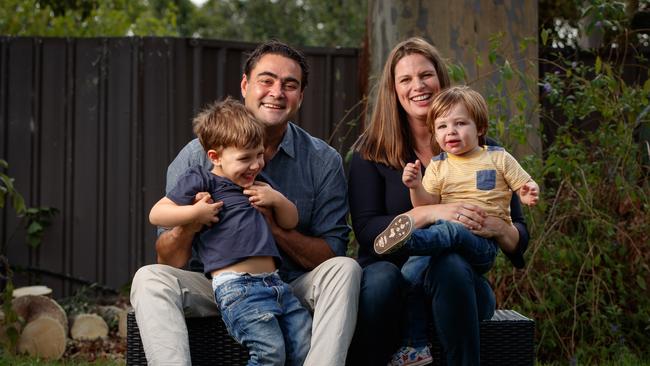
She knows her departure started a debate on whether female MPs could be a mother and hold down such a demanding job. She insists they can.
“I know that when I announced my decision there was this whole debate about have we got this big problem that we can’t have young women who might want to have children, we can’t attract them to the parliament, and I’ve really tried hard to get out the message that that is not true.”
Retirement is not, she insists, for the sake of the kids. “I did it for me.”
Not that Ellis knows exactly what lies ahead. She wants to be busy, otherwise she sends herself and those around her “a bit crazy”.
“For now I want to have some fun with my husband, some family adventures and catch up with friends,” she says.
Ellis’s time in Canberra was a tumultuous one. She sat in parliament with seven prime ministers, starting in 2004 under John Howard and moving through Kevin Rudd, Julia Gillard, Rudd again, Tony Abbott, Malcolm Turnbull and Scott Morrison.
She says it is no coincidence that over that period the gap between the community and politicians has widened.
Those leadership changes, the spills and dysfunction from both sides turned cynicism into something nastier.
“There is a level of anger now that there wasn’t previously,” she says.
“We are going to have to find a way as a profession to get better at putting out to the public a more well-rounded view of our jobs and what we do.”
The solution, as she sees it, is for politicians to push themselves out of their bubble and interact more with the people who send them to Canberra.
“Letting people see first-hand that politicians can actually care and work hard, and not just leaving it to snippets from the theatre of question time to shape people’s views. I think people think they (politicians) are in it for themselves and they are more interested in their own agendas.”
But not all change has been negative.
There are more women in parliament than even before. Julia Gillard became prime minister, Julie Bishop deputy Liberal leader, and the number of women grew, especially on Labor’s side, which is almost 50-50.
The Liberals trail badly, but even so the total female component is rising. In 2016 there were 73 women in parliament, 32 per cent; in 2010, there were 66.
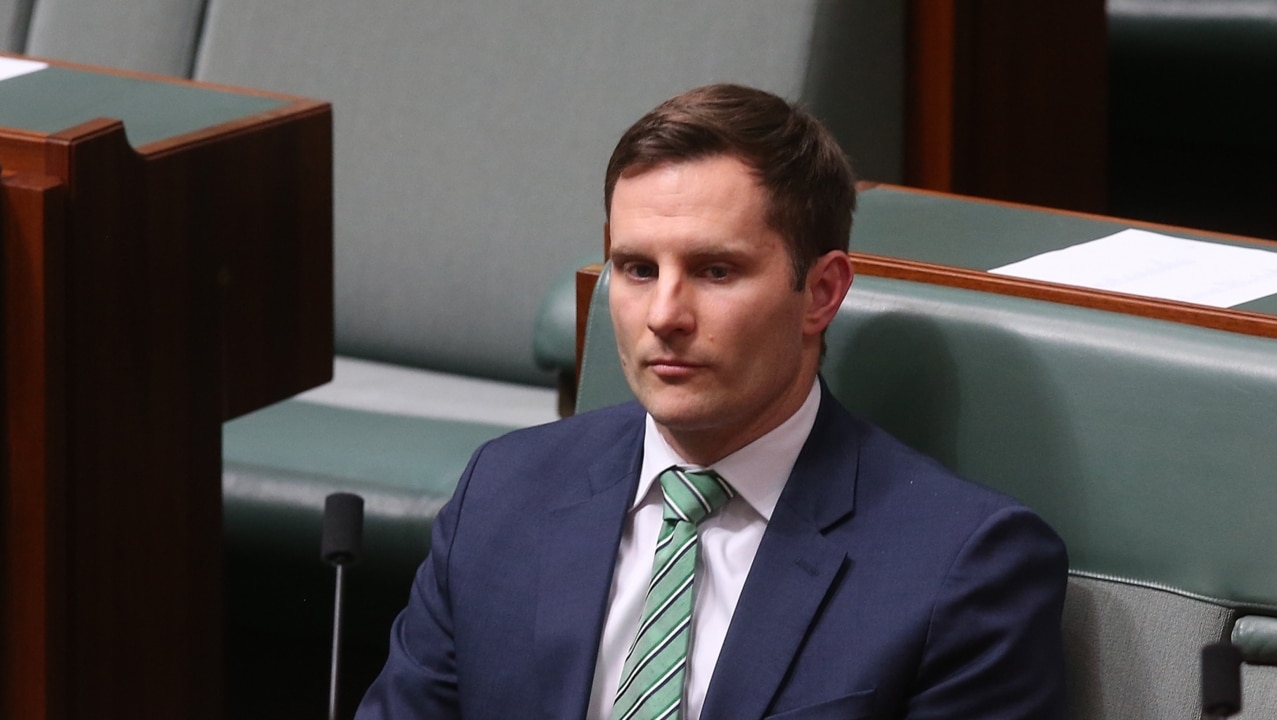
Sexism may be in retreat but it’s not going without a fight.
Ellis’s own story is perhaps emblematic of the change in attitudes. In her early days, Labor openly sought to capitalise on her good looks and youth.
In parliament she was placed directly behind then leader Mark Latham, ensuring she was on the TV news. Ellis was regularly voted as Australia’s best-looking pollie by magazines whose political coverage was only ever skin deep.
But her looks also drew ugly attention: she recalls horrible texts accusing her of winning party preselection through sexual favours.
The rise of social media gave a voice to all sorts of grubs. Late one night via Twitter, she was sent a tweet from a male saying “how many blokes did Kate Ellis have to blow to get her preselection?”
“I blocked him,” she says.
“Now people would say there is no way you have to put up with that sort of abuse in your own home out of hours from someone you don’t know.”
There were also death threats on Christmas Day, after Ellis sent out her 2016 Christmas cards, which featured artwork from local primary school students. Ellis says the card featured the words
“Merry Christmas” four times and had a drawing of the baby Jesus, but the use of the phrase “Happy Holidays” triggered the threats.
“Someone took grave offence at this,” Ellis says.
An email distributed widely to veterans and pensioner groups, and to conservative forums, claimed Ellis was denying Australia’s Christian heritage and pandering to Islamic extremists.
She was inundated with thousands of calls, emails and letters berating her for being captured by political correctness, or trying to deny the existence of Christianity.
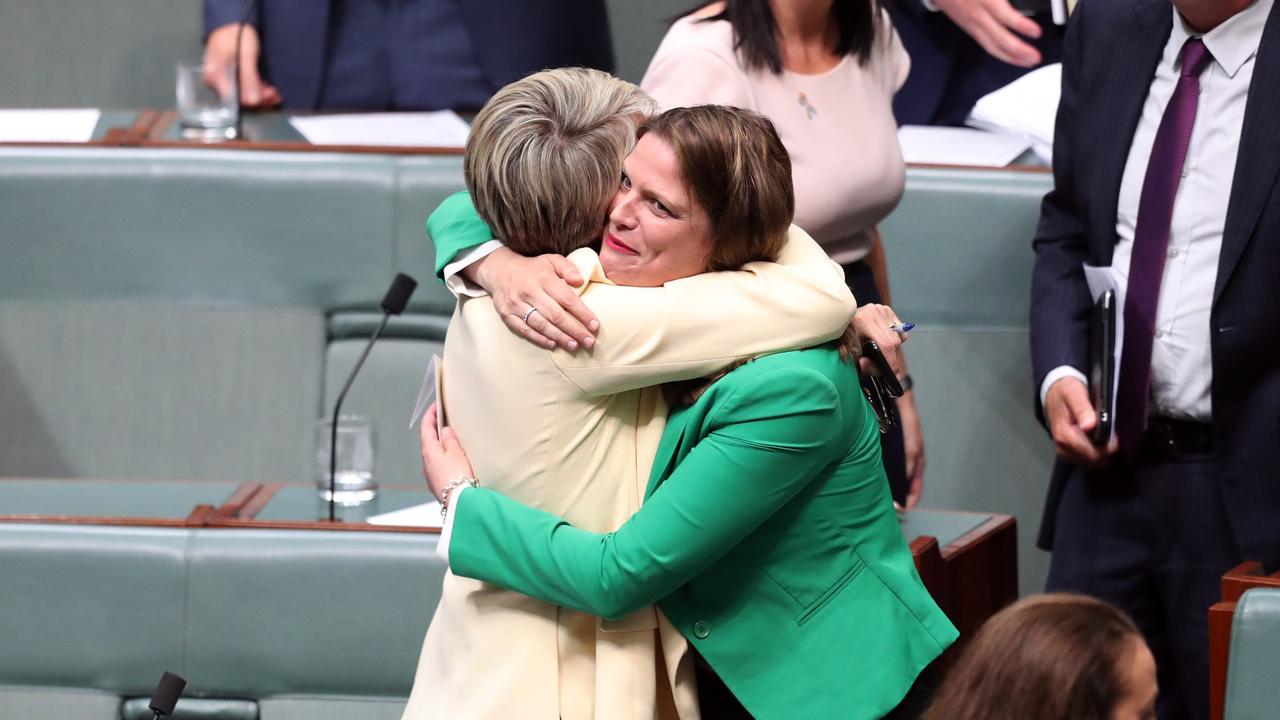
“Many of these letters were angry, abusive and even threatening,” Ellis says.
“I was receiving death threats still on both Christmas Eve and Christmas Day, which did strike me as ridiculously ironic — that people would try to protect the teachings of Christ by threatening a stranger.”
She says women often find that their credibility is attacked and undermined by people spreading gossip about their alleged sex lives.
“I had completely untrue rumours spread about me allegedly sleeping with various colleagues or staff members — all of them baseless,” she says.
“There were times when journalists tried to write these rumours up as news stories and I knew that, despite my denials, my reputation would be irreversibly damaged and so I was forced to put time and effort into stopping publication that I would have much rather spent actually doing my job.”
There was one occasion, however, when she may not have helped her own cause, posing in a leather dress and stilettos for a photo shoot for fashion magazine Grazia in 2010 while still Sports Minister.
The shoot caused a furore, with Ellis called a hypocrite after she had previously campaigned for the fashion industry to improve their approach to body image and the portrayal of women in magazines.
Looking back, she says it’s a matter of some regret and she wishes she had been “more outspoken about the outfit choice”.
Ellis believes part of the answer to better treatment of women in politics will lie in time and raw numbers, although there is still more to be done. “We’ve gotten better as there’s been more women in parliament and it has been less unusual,” she says.
“And, as we’ve become more and more diverse, people have gotten better at calling out bad behaviour. It’s certainly not perfect but it has changed for the better.”
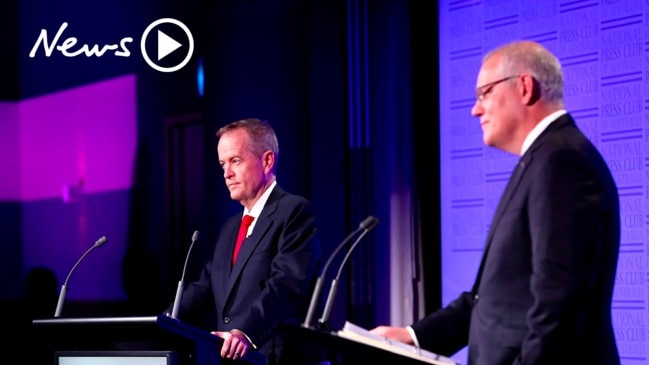
Which makes it all the more surprising she is opting out now.
Across politics, in whatever party, women have to fight harder than men to win a seat, to win a spot in cabinet, to rise through the ranks. Yet, at what she admits is her peak, Ellis is walking away.
She consoles herself with the thought there is an army of “passionate, talented, hard working women” in Labor’s Caucus ready to carry on the work. “There is this whole generation that is just about ready to burst through the doors of Parliament House,” she says.
One of the women she leaves behind is Labor’s deputy leader, Tanya Plibersek. The pair met at Labor Party events before Ellis was elected, and later became house mates in Canberra. Plibersek says she was always impressed by Ellis’s campaign skills.
“All we had to do was give Kate the opportunity to speak to voters and she, her personality, her intellect, her good humour would convince them to vote for her,” says Plibersek, who becomes teary at the thought of her former flatmate’s departure.
She says Ellis’s biggest achievement was the early childhood national quality framework, because she understood that good quality “play-based learning” was important for brain development.
Ellis was an inspiration for young women to show you can combine different roles — career and family — and achieve so much.
“Her success, her policy achievements will hopefully mean that other young women aren’t subjected to the same sort of (sexualised) nonsense,” Plibersek says.
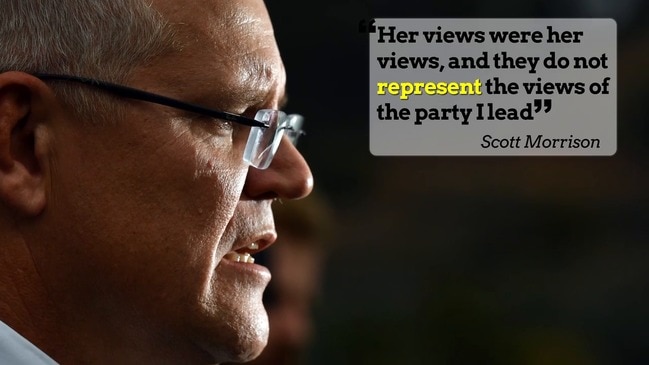
When Ellis arrived in 2004, Mark Latham was still Labor leader, but had led the party to a bruising loss. It was a harsh introduction to politics. Even the party elders were struggling to comprehend what was going on.
“We had just been wiped out, Latham was really unpopular in the party, people were trying to get rid of him,” Ellis says. “Kim Beazley actually pulled me aside and said ‘Kate, I’m among the longest serving that is left here, you’re brand new. I just want you to know that this is the worst I have ever seen it and it’s not normally like this, so it will get better’.”
Of course, Beazley would replace Latham.
Then Rudd would replace Beazley. They were heady days. Kevin 07 was sweeping the land and the optimists believed Labor, after enduring 11 years of Howard, was set for a similarly glorious reign.
But the excitement soon faded.
A difficult first term for Rudd ended with him being knifed by the party and replaced by Julia Gillard. It started a revolving door of prime ministers from both sides that caused deep disquiet in an increasingly cynical electorate.
Ellis concedes her party “let down” people.
“It was dark, it was divided, it was this toxic environment, it was really negative, it was really difficult.”
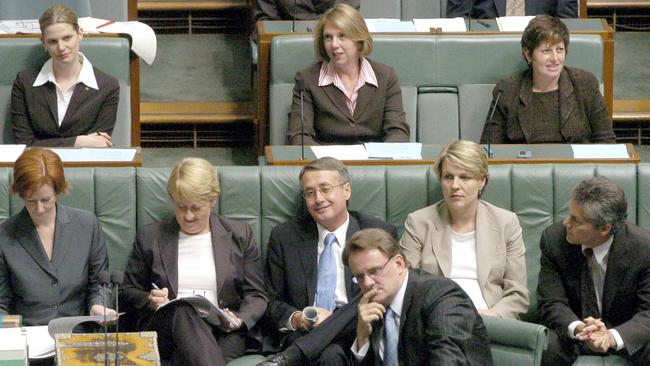
Ellis became a foot soldier for Julia Gillard and, in the first Gillard ministry, she added the portfolios of early childhood education and childcare to youth and sport. She would later lose sport and pick up employment participation.
In her valedictory speech, Ellis thanked Gillard for her support and the inspiration “she continues to provide”. She still doesn’t like Rudd much.
In 2012, Ellis spoke publicly of her “disgust” at Rudd’s disloyalty after his tirade about Gillard to Labor supporters at Adelaide’s Stag Hotel a year earlier. Rudd denied the attack but Ellis, at the time, said she knew “he was talking down the PM”.
Such were the stresses of life in a divided government, Ellis says she enjoyed the change to opposition — which is not a claim you will hear many ministers make.
Part of it was Labor’s new leader, Bill Shorten, gave her the “dream portfolio” of education, but life outside the daily firing line of government was also more pleasant.
“You had the chance to take a step back, breathe a bit, rather than focusing on day to day immediate issues, focus on real policy development — some brave and bold policy development where you have the space to do it — and that was without doubt my favourite term in the parliament,” Ellis says.
She sees education as the cheapest way to change the future — stopping intergenerational welfare dependency, unemployment and substance abuse — by intervening earlier.
“We made some huge changes in early childhood education in government and since in opposition,” she says.
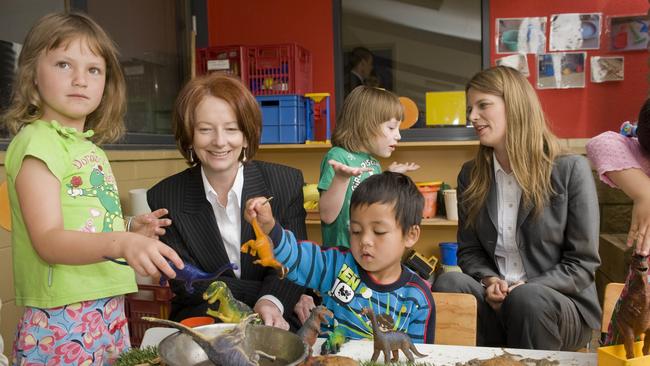
Ellis got into politics because she believed you shouldn’t complain about the state of society if you’re not willing to stand up and change it. Growing up in Mannum, politics had never been a discussion point around the dinner table. But her world was turned upside down when her father Chris died when she was only 16. Every year, she goes back to the town on the banks of the Murray with her mother and brother to remember her father on the day he died.
“I was really worried because dad died just after I was 16 and I was a nightmare teenager,” Ellis says. She told her mum that she worried that, “I was off the rails and then he died and he never got to see that it was all right and I came good eventually. And mum just said to me, ‘Kate, he was never worried, he was always the one that said to me she has a good head on her shoulders she’s going to sort it’.”
Now she has her own family and she insists politics is still not discussed at the dinner table, even though she is married to FIVEaa radio host David Penberthy, whose morning show regularly covers the latest shenanigans in Canberra.
A recipe for rows at the kitchen table? “Actually we don’t really focus on those issues … It’s pretty rare that Dave and I would get into political discussions,” she says.
“The things that I guess bond us, and that are the reason why we are together, are more that we both love to have a laugh, or we both love the footy.”
The pair had their first date during the World Cup in South Africa in 2010, where Ellis as Sports Minister, and Penberthy as journalist, were sent for work.
They married in 2013 and despite their Adelaide power-couple status, Ellis says very little of their professional lives overlapped. But, still, they decided early on that there were a few issues they should never discuss and the waterfront dispute of 1998, when workers of Patrick Corporation were locked out, was one of them.
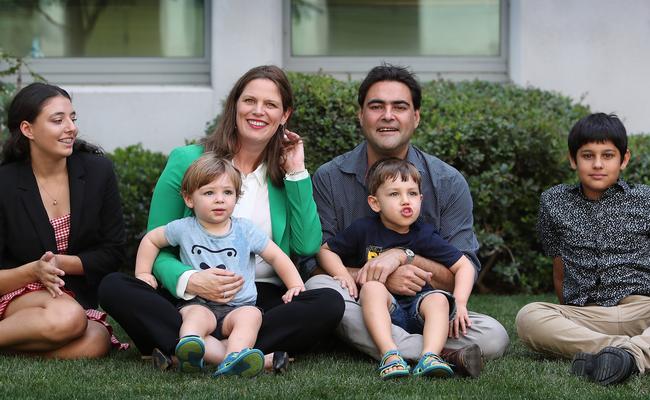
“It is a black and white issue for me — we should not allow our workers to be locked out and then threatened by balaclava wearing security guards with fierce german shepherds! As I said, we don’t discuss it but Dave may see some shades of grey in the issue where I see none.”
Ellis describes family life as “insane” but says “it’s ours, it is a special circus”.
Their family consists of Penberthy’s children from a previous marriage, Sophie, 15, and Jim, 12, as well as the couple’s young sons Sam, 4, and Charlie, 1.
Ellis admits she was not as present as the Member for Adelaide as she was before she had children.
LISTEN: ELLIS & PYNE - FEDERAL ELECTION PODCAST
“There’s this constant sense of guilt, even when you are at events seven nights a week,” she says. “So once you add children and a family, and not being able to be available outside of working hours all the time, then you actually just have to learn how to say no.”
Ellis knows, despite all the madness that politics brings, she will miss it.
“Maybe that is one of the things that is going to make it harder to adjust to life afterwards — I have grown up in that parliament,” she says.
Election night is going to be weird. For the first time in five elections she is not a candidate. And if Labor wins?
“I imagine I’ll sit, if that happens, watching them all be sworn in on TV thinking ‘what am I doing? I could have been a cabinet minister with a safe seat’,” she says.
“I imagine I will think that several times and I will find a way to move past that and decide what it is that I want to be my next adventure.”


Add your comment to this story
To join the conversation, please log in. Don't have an account? Register
Join the conversation, you are commenting as Logout
Adelaide’s pioneering bid to end homelessness in the CBD
A new move to learn the names and stories of the homeless is driving a bid to cut Adelaide’s rough sleeper numbers to effectively zero. Roy Eccleston reports.
From YouTube to big screen: Adelaide’s car prankster’s directorial debut
They are the Adelaide brothers who became billion-view YouTube stars after an underwater car stunt gone wrong. Now the RackaRacka duo's debut feature film is about to hit the big screen at a gala event. Read their incredible back-story.